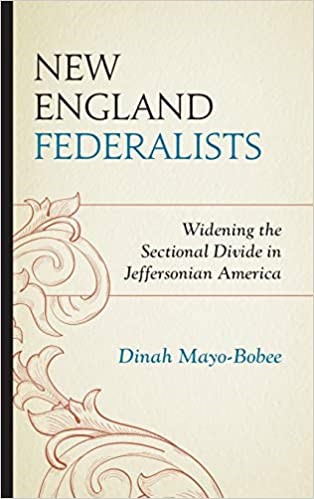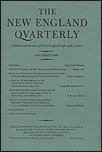
Dinah Mayo-Bobee
Grad Prog Coordinator, Associate Professor
- mayobobee@etsu.edu
- 423-439-6696
- Rogers-Stout 114
Education:
Ph.D., 2007, University of Massachusetts-Amherst
M.A., 2001, University of Massachusetts-Amherst
B.A.,1998, Norwich University
Academic Research & Teaching
The American Revolution The Constitution
and Slavery
Abolition & the Civil War on Film The Early Republic
Espionage and Treason in the Early Republic The Founders and Religion
Early American Political Biography Conflict & Compromise
Early U.S.
War and Diplomacy in the Early Republic Historical Methods
Women of Influence in Early American Politics Introduction to Historical
Research
Western Thought to 1600 Western Thought
Since 1600
Selected Publications:

New England Federalists: Widening the Sectional Divide in Jeffersonian America (Farleigh Dickerson University Press, 2017):
A look at the highly contentious period during Thomas Jefferson’s restrictions on foreign trade. It demonstrates that New England Federalists’ protests over legislation they deemed hostile to their region’s economy began with efforts to repeal the Constitution’s three-fifths ratio for slave representation that anticipated the free labor and free soil movements, New England nationalism and the sectional divide over slavery in the decades before the Civil War.

"Understanding the Essex Junto: Fear, Dissent, and Propaganda in the Early Republic,” The New England Quarterly, Vol. 88: 4 (December 2015): 623-656.
This article chronicles the evolution of suspicions over political cabals after the American Revolution. The mistrust that gave birth to the nebulous “Essex Junto,” national politics was thereafter used to foster fear and doubts about Americans in opposition to the leading party despite political party or geographic location for over five decades.

"Servile Discontents: Slavery and Resistance in Colonial New Hampshire, 1645-1785,” Slavery and Abolition 30:3 (September 2009): 339-60.
Servile Discontents looks at runaway slaves and the efforts slaveholders took to recapture them. The article underscores the importance of slave labor and efforts to control human property in one of British America’s smallest northern colonies.
 Sam Wilson West Parking Lot C...
Sam Wilson West Parking Lot C...